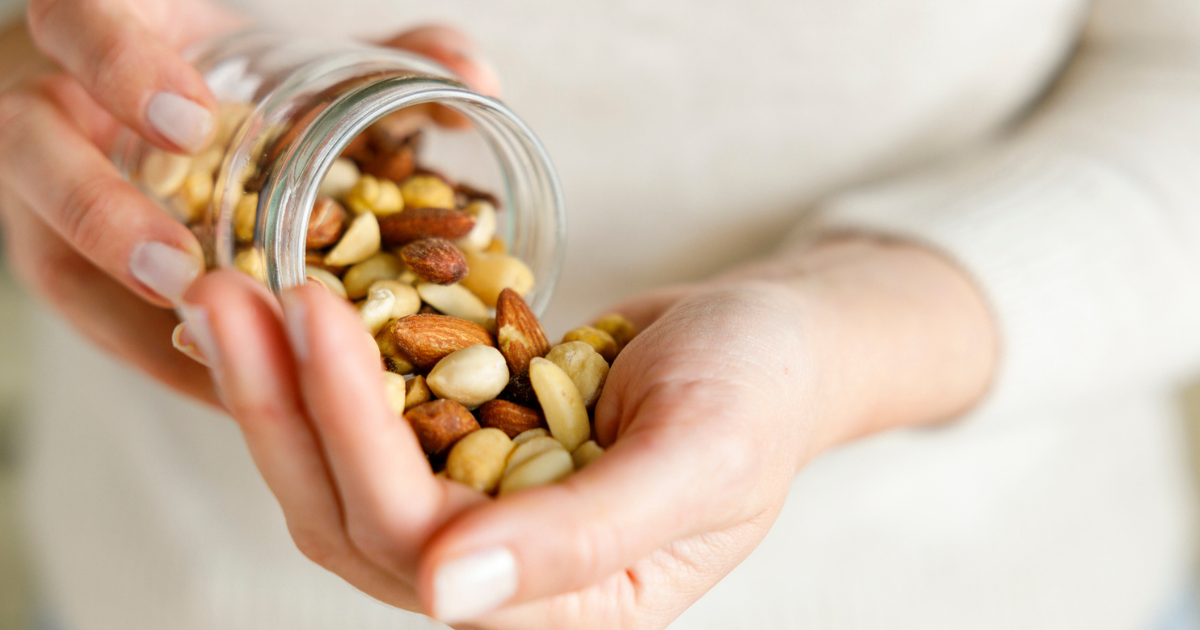Can nuts help reduce cancer risk?

Nuts and seeds have gotten mixed reviews over the years. The humble nut is not alone: Questions regarding the relationship between diet and cancer are common, including the risks or benefits of coffee, dairy, red meat, following a gluten-free or keto diet and food additives like artificial colors.
Still, increasing evidence shows that nuts are a healthy choice to help improve overall health and potentially lower cancer risk.
Research continues to support the idea that nuts can complement a nutrient-rich, cancer-protective diet. The 2020-2025 Dietary Guidelines for Americans recommends eating about an ounce (about ¼ cup) daily for maximum benefit. A recommended serving size of seeds is 1 to 2 tablespoons daily.
The American Institute for Cancer Research also highly recommends nuts as part of a healthy, potentially cancer-reducing diet. Why? Nuts contribute to an anti-inflammatory diet by being high in fiber, heart-healthy omega-3 fatty acids and vitamin and mineral-rich antioxidants.
Why are antioxidants important?
Antioxidants are inflammation fighters that protect cells from oxidative stress. Oxidative stress is an imbalance of inflammation fighters and inflammation creators. High amounts of oxidative stress can contribute to the development of cancer.
Foods high in antioxidants can help counteract inflammation, minimizing cell damage that may lead to cancer. Examples of antioxidants found in nuts include vitamin E, selenium and several polyphenols (antioxidants made by plants).
How does fiber help reduce cancer risk?
Nuts and seeds, rich in fiber, play a crucial role in promoting gut health. Fiber promotes regular bowel movements while increasing the beneficial bacteria population in your gut. In turn, these beneficial bacteria can help reduce inflammation.
Which nuts and seeds are best to eat?
No nut or seed is considered bad. Recommended types include:
- Nuts: walnuts, almonds, Brazil nuts, cashews, pistachios, hazelnuts and pecans.
- Seeds: flaxseeds, chia seeds, pumpkin seeds, sesame seeds, hemp seeds and sunflower seeds.
Healthy ways to include nuts in your diet
- Top salad, yogurt, cereal, oatmeal, avocado or snacks.
- Blend into smoothies.
- Make a grab-and-go trail mix by combining your favorites with two tablespoons of dried fruit.
- Mix in or top at the end when making pasta, cooked grains, soup or stir-fried vegetables.
- Lightly toast nuts and seeds to enhance their flavor in any dish.
Why do walnuts get more attention?
All nuts are beneficial in reducing cancer risk, but walnuts have been studied more than other nut varieties. They have more ellagitannins, one type of polyphenol (plant antioxidant) that fights inflammation creators in the body.
Combined with other essential ways to reduce your cancer risk, eating nuts and seeds alongside a healthy, nutritious diet can help.
The Cancer Risk and Prevention Clinic can assess your risk and offer a personalized plan to prevent cancer. Call 402.559.5600 to schedule an appointment.
Contact our Cancer Survivorship Program, which includes nutritional guidance from Nebraska Medicine registered dietitians.







